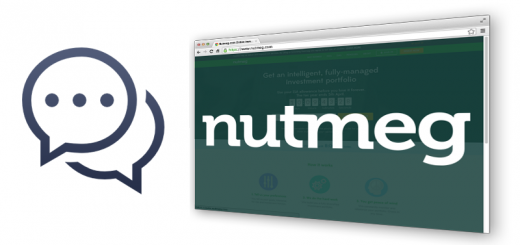Should young professionals rent or buy?
Navigating your way through the property market can be difficult. Especially amongst the stamp duty changes, the reality of the housing crisis and the ever growing list of up and coming neighbourhoods. But for the likes of young professionals, there’s the added debate of renting vs buying.
The internet is full of articles on the topic, written by people firmly sat on either side of the argument. In fact, we’ve even published two blogs on the topic in the past. One of which explored the mother lode of anxiety experienced by millennials, where the housing crisis was to blame. Another details why many young professionals aren’t buying anymore.
So, we decided to talk to some professionals. We conducted our own research* and asked, “Should Young Professionals Rent or Buy?”
Here’s what we found out.
Andrew Turner, CEO of Commercial Trust Limited
Commercial Trust Limited is a specialist UK broker, who deals with three types of loans: buy-to-let mortgages, commercial mortgages and bridging loans.
When it comes to what is wiser, rental or purchase, in this current housing ‘crisis’, I believe it really comes down to the individual’s financial planning and personal future considerations. The housing market is suffering from a shortage of properties and increasingly higher property prices. However, I believe that buying is still a stronger proposal for young professionals, providing they have no immediate plans to move on. You are buying into your future in that location and although affordability will ultimately be the deciding factor, there are still many properties out there that are reasonably priced for first time buyers.
Lyn Alden, founder of Lyn Alden Investment Strategy
Lyn provides market research to individual investors and financial professionals. Her work has been featured on The Street, Federal News Radio, Business Insider, and US News and World Report.
For a typical professional that starts a job in their 20’s, research shows that there’s a more than 4 in 5 chance that they will leave that job within five years. The average worker now changes jobs over 10 times in the course of a career, which is significantly more frequently than in the past and affects people of all ages.
People interested in buying a home in their 20’s or 30’s should seriously consider how a job change might affect their situation. Especially outside of certain cities, a job change in an advanced field may require relocation. For that reason, renting is wiser until you’re confident that you’ll be in the area for a while, and even then, it’s not always the right choice.
One thing to keep in mind is that a home is an investment and should be compared to other investments if you’re considering buying one for that purpose. Putting a down payment onto a home in exchange for lower monthly housing costs and the possibility of appreciation is one way to build wealth gradually, but continuing to rent and putting that same down payment into other investments like equities can result in similar returns over long periods of time.
Timothy G. Wiedman, D.B.A., PHR, SHRM-CP, Associate Prof. of Management & Human Resources
In addition to earning two graduate degrees, Timothy has also completed a certification in Financial Planning at Old Dominion University and taught a university course on Personal Finance.
As the cost of rental units continues to rise in many areas of the country while mortgage interest rates remain affordable by historical standards, we often hear that “it’s cheaper to buy than to rent these days.” And while (in many locations) that statement may often be correct, potential first-time buyers should definitely consider the following aspects of becoming a new home-owner.
- The Mortgage Deposit Required.According to a September, 2015 article in The Guardian, the median price of an existing home throughout much of the UK (excluding pricey London) was roughly £160,000. And most mortgage lenders generally require a 10% deposit, which works out to £16,000 for an average, median-priced home. So even if a home in a less-expensive area can be located, the deposit will still be a major consideration. In fact, on its website, PricedOut.org.uk states that it can take 12 years for many folks to save enough for that deposit, and they also estimate that 3.5 million taxpayers are effectively priced out of the home-buying market because of unaffordable prices.
- Upfront Fees. While these fees can reflect a wide variety of variables, they include items such as solicitors’ fees, valuation reports, Stamp Duties, etc. These costs must be estimated and saved for in addition to the mortgage deposit.
- Settling In. Your new home may look absolutely wonderful to you when you make your initial buying decision. But is it actually “move-in” ready? After I took possession of my last home, before even moving in, I replaced all of the carpeting, put in a new kitchen floor, and repainted most of the interior. A few months later, I put on a new roof (after the old one began leaking — the home inspector had told me that the roof was on its last legs, so I wasn’t really surprised). Shortly thereafter, I put vinyl siding over the old wood shingles, installed new gutters, downspouts and soffits, and capped the exterior window trim. Later that year, most of the interior window treatments were replaced, as were the kitchen and bathroom counter tops. Then came a new mahogany front door (with a frosted oval of leaded glass). Get the picture? (And I haven’t even mentioned replacing the 26-year-old furnace a year after that.) If you’d formerly lived in an apartment complex that had a professional maintenance staff, much of this will be an expensive new experience!
- Never-Ending Chores. If you don’t own a lawn mower, weed-whacker, hedge trimmer, various lawn & garden implements, a couple of ladders, a 50-foot garden hose, and possibly a leaf blower (depending on where you settle), you’ll start spending some of your “free time” at Argos spending money and making new friends. And you’ll also gradually learn about minor plumbing and electrical repairs — and who to call when you can’t fix it yourself. Maintaining a home is a never-ending series of chores. Some folks enjoy the challenge, but others do not!
- How Long Will You Stay? If you’re likely to move after just a few years, buying may not make sense. Check the recent annual appreciation rate of homes in your area. Then consider the fact that in the early years of a mortgage, you’re mostly paying interest — your equity stake doesn’t go up much at all. Further, you’ll also incur moving costs if you relocate. Will your home’s appreciation cover those items? In some locations, it might after just a few years; but think about it up front if there’s some likelihood of a job-transfer in the fairly immediate future. (Sometimes an apartment lease may have an “escape clause” if you get transferred; and even if your lease doesn’t include this provision, many employers will cover the cost of any penalties that you might have to pay your landlord for an early termination of your lease if they ask you to move to another company location. Early in my business career, I was transferred several times. I was strictly a renter back then, and that made each transfer-related move a lot easier.)
If you’re still convinced that buying is cheaper than renting (and can afford everything mentioned above), take the leap. Over time, most homes appreciate; so, in the end, it’s generally not as expensive as it sounds. Further you have to live somewhere; and unless you stay with mom and dad, it won’t be free. I’ve bought and sold several homes and always came out ahead of the game — but I didn’t get rich either!
Andrew Gardiner, CEO and Founder of Property Moose
Property Moose is an online property crowdfunding platform that allows individuals to invest in property from just £10.
Ultimately, I believe it comes down to the individual’s circumstances. Buying may seem out of the question unless you have a large amount of capital to begin with, hold expert knowledge of the market and have the energy to manage the property. It’s this exact issue which Property Moose tries to solve. We’ve attempted to simplify, revolutionise and democratise the property market. Through the power of property crowdfunding, all you need is £10 to become a home owner and earn rental income. We hire local expert agents who manage the properties so that you can be a landlord without any of the usual chores. In addition, considering the lower entry point, you could spread your capital across many of our investment opportunities, thereby building a diverse portfolio. Like traditional property investment, your capital is at risk if you invest, however, we select our property’s very carefully in attempt to minimize this risk, though property prices can go up as well as down.
*Correspondence was secured via Help a Reporter Out (HARO) and took place over email.
Written by Jenna Kamal
Disclaimer and Legals
Property Moose does not provide any advice in relation to investments and you must rely on your own due diligence before investing. Please remember that property prices can go down as well as up and that all figures, rates and yields are projections only and should not be relied on. If in doubt, please seek the advice of a financial adviser. Your capital is at risk if you invest. This post has been approved as a financial promotion by Resolution Compliance Limited.
Property Moose is a trading name of Crowd Fin Limited which is an Appointed Representative of Resolution Compliance Limited which is authorised and regulated by the Financial Conduct Authority (no: 574048).






